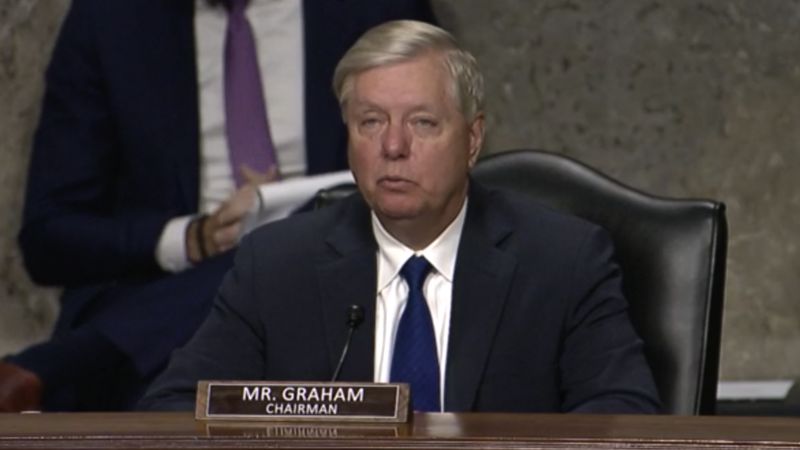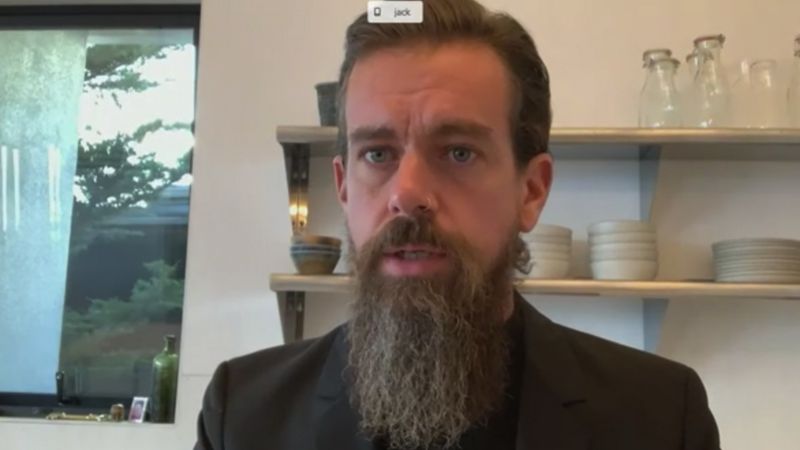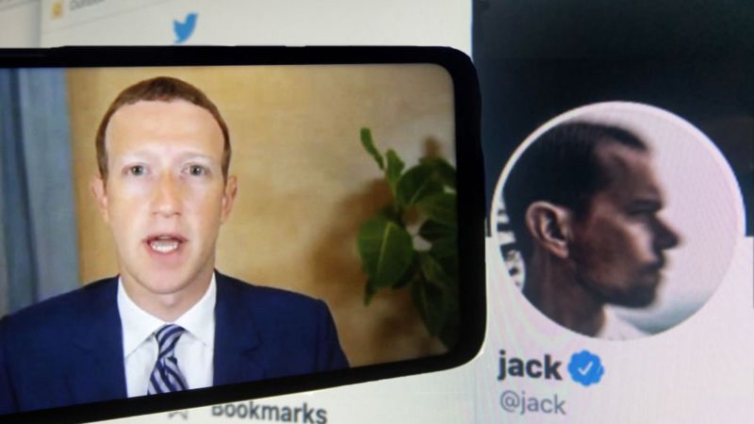Facebook and Twitter's chief executives are being cross-examined by US senators for the second time in three weeks.
The two have been summoned to answer questions about how their platforms had limited distribution of a controversial article about Joe Biden's son published ahead of the US election.
But they are also likely to be challenged over their handling of posts by President Trump and others who have contested the vote's result.
The tech firms face new regulations.
In particular, President-elect Biden has suggested that protections they currently enjoy under a law known as Section 230 should be "revoked".
It says the platforms are generally not responsible for illegal or offensive things users post on them.
Mr Biden has said this allows them to spread "falsehoods they know to be false".
Facebook and Twitter's chiefs get grilled again https://t.co/d22XTK8bHN
— BBC Education (@bbceducation) November 17, 2020
Republicans have also voiced concern about the law. They claim it lets social media companies take decisions about what to leave up and take down without being transparent about why, making bias possible.
"When you have companies that have the power of governments, have more power than traditional media outlets, something has to give," said the Republican Senator Lindsey Graham, who is chairman of the Senate Judiciary Committee.

Facebook's Mark Zuckerberg and Twitter's Jack Dorsey both addressed the issue in their opening remarks.
Mr Dorsey urged the politicians to work with Twitter to avoid changes that might cause "the proliferation of frivolous lawsuits, and severe limitations on our collective responsibility to address harmful content".
Mr Zuckerberg added that any update must preserve "the freedom for people to express themselves and for entrepreneurs to build new things".
The two tech CEOs also defended their record in handling the 2020 election.
But Mr Dorsey acknowledged that Twitter's decision to block links to the New York Post article about Hunter Biden had been "wrong", and that its failure to subsequently restore the newspaper's own tweets about the story had required a further policy change.

"I hope this... demonstrates our ability to take feedback, admit mistakes and make all changes transparently to the public," he said
Mr Zuckerberg avoided direct reference to the matter.
However, he used the opportunity to challenge recent claims by Democrats that Facebook had been slow in removing posts that promoted insurrection and violence.
"We strengthened our enforcement against militias and conspiracy networks like QAnon to prevent them from using our network to organise violence or civil unrest," Mr Zuckerberg said.
Last month's hearing involved several testy exchanges, including one between Mr Dorsey and Ted Cruz, in which the Republican senator asked: "Who the hell elected you and who put you in charge of what the media are allowed to report?"
At that time, several of the committee's Democratic members opted not to ask questions at all, claiming the event was a "sham" and an excuse for their rivals to "bully and browbeat" the executives in order to gain more votes.
Following Mr Biden's victory, the focus this time may be on criticism from the Democrats themselves.

Ahead of the event, several Democratic senators sent a letter to Facebook demanding it take a tougher stand against anti-Muslim abuse on its apps.
Attention will also be paid to whether Senator Kamala Harris takes the opportunity to get involved.
The Vice-President elect is a member of the Senate Judiciary Committee, but did not ask questions last time around.
On Monday, the BBC revealed that Facebook had removed racist posts on its main platform about her after they were flagged to it, but had decided not to take further action against the groups they had appeared in.
The senators may also question Twitter about Fleets - a new feature it launched in the hours ahead of the hearing,
It introduces a new type of post that self-deletes after 24 hours.
It has been suggested that the facility may make it harder to hold users to account for bad behaviour, but could also help counteract overly aggressive "call-out culture".
Latest Stories
-
Bawumia joins thousands in Kumasi for burial prayers for Ashanti Regional Imam
2 hours -
Blue Gold Bogoso Prestea Limited challenges government actions in court
2 hours -
Patrick Atangana Fouda: ‘A hero of the fight against HIV leaves us’
3 hours -
Trinity Oil MD Gabriel Kumi elected Board Chairman of Chamber of Oil Marketing Companies
3 hours -
ORAL campaign key to NDC’s election victory – North America Dema Naa
4 hours -
US Supreme Court to hear TikTok challenge to potential ban
4 hours -
Amazon faces US strike threat ahead of Christmas
4 hours -
Jaguar Land Rover electric car whistleblower sacked
4 hours -
US makes third interest rate cut despite inflation risk
4 hours -
Fish processors call for intervention against illegal trawling activities
5 hours -
Ghana will take time to recover – Akorfa Edjeani
5 hours -
Boakye Agyarko urges reforms to revitalise NPP after election defeat
5 hours -
Finance Minister skips mini-budget presentation for third time
6 hours -
‘ORAL’ team to work gratis – Ablakwa
6 hours -
Affirmative Action Coalition condemns lack of gender quotas in Transition, anti-corruption teams
6 hours

